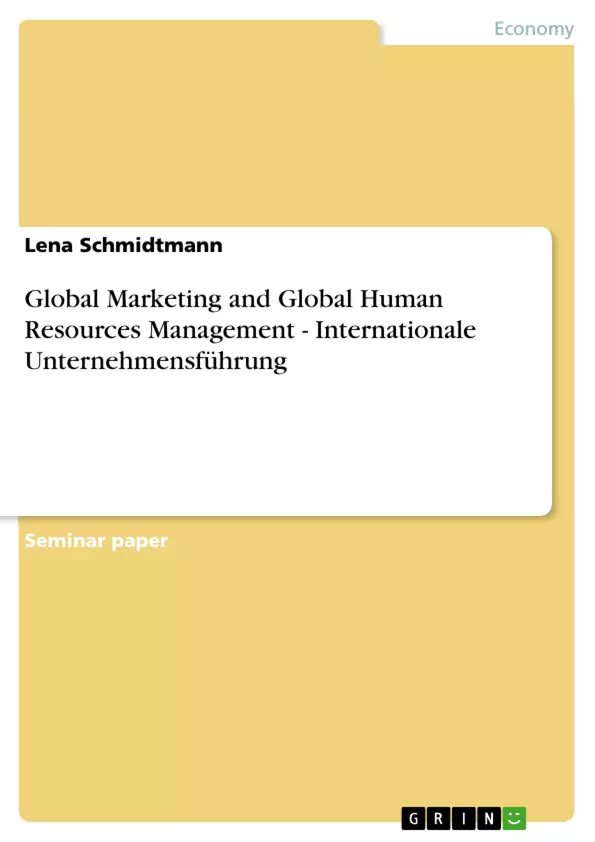1. Introduction
The moving of the business world into an interdependent global economic system is referred to as globalization1. The principal goal of a globalization strategy is successful economic development in different countries, but we see also the influence of the globalization process on social, political and culture life. One of most difficult barriers for this process is cultural values and norms of civilisations. Despite of process of market and production globalization and as of world modernisation that could guide to universal civilisation, the countries are different, because their evolution process and culture are different. Even if there is no reason to think, that these differences bring to conflict between civilisations in future, it is necessary to know, that making contact between various cultural societies demands great effort.
In following paper we will discuses about a global marketing management, a new-product development and implementation at the global market, and also about global human resources management. We will illustrate some aspects to which a manager of an international firm must do attention doing business. We look at such elements, which constitute a firm’s global managing such as: brands and their attributes, distribution system, exactly said, differences in distribution system, then we look at principal facts challenging a new-product development. Each product must be viewed in light of how it is perceived by each culture with which it comes in contact. An established product in one culture may be considered an innovation in another is critical in planning and developing consumer products for foreign markets.
If we will discuss about managing functions, we will examine also global human resource management. Human resource management is an essential part of every manager’s responsibilities in different firms. The managers must give attention to numerous factors of doing business in various countries, and they must organize the work of personal in different nations. We look at factors of human resource management such: selection of employees, organization, trainings, and salary base.
Also, in our report we will try to determinate the aspects of global marketing management and to characterize principal activities of international firms’ managers.
[...]
Inhaltsverzeichnis (Table of Contents)
- Introduction
- Global Marketing Management
- Managing global brands
- Differences in distribution system
- New-product development for Consumer..
- Global Human Resource Management
- Conclusion
Zielsetzung und Themenschwerpunkte (Objectives and Key Themes)
This paper explores the dynamics of global marketing management, specifically focusing on managing global brands, navigating distribution system variations, and adapting new product development to diverse global markets. Additionally, the paper delves into the complexities of global human resource management within the context of an international firm.
- The impact of cultural values and norms on globalization strategies.
- The importance of adapting products and marketing strategies to local markets.
- The role of global brands in shaping consumer perceptions and preferences.
- The challenges and strategies involved in managing human resources across international boundaries.
- The need to balance standardization and customization of products to meet diverse global customer needs.
Zusammenfassung der Kapitel (Chapter Summaries)
- Introduction: The paper introduces the concept of globalization and its impact on the business world. It highlights the importance of understanding cultural differences and the challenges of doing business across borders.
- Global Marketing Management: This section examines key aspects of global marketing management, including managing global brands. It discusses the benefits and challenges of using a global brand strategy, including the need to adapt products to local markets while maintaining a consistent brand image.
- Managing Global Brands: This section explores the concept of global branding, highlighting its role in building a consistent company image worldwide. The discussion emphasizes the need to balance global branding strategies with local market needs, while providing examples of companies using global brands successfully.
- Differences in Distribution System: This section examines the variations in distribution systems across different global markets. It highlights the importance of adapting distribution strategies to local market conditions and the potential impact of cultural differences on the effectiveness of distribution systems.
- New-product Development for Consumer..: This section focuses on adapting new product development strategies to cater to the specific needs of global consumers. It emphasizes the importance of understanding cultural differences in consumer preferences and the challenges of creating products that resonate with diverse global audiences.
- Global Human Resource Management: This section explores the key elements of global human resource management, including employee selection, organization, training, and salary structures. It highlights the challenges of managing a diverse workforce across international boundaries and the need to adapt human resource practices to local regulations and cultural nuances.
Schlüsselwörter (Keywords)
This paper examines key concepts related to international business, global marketing, and global human resource management. Core themes include globalization, cultural differences, global brands, distribution systems, product adaptation, international human resource management, and the challenges of operating in diverse global markets.
- Citar trabajo
- Lena Schmidtmann (Autor), 2004, Global Marketing and Global Human Resources Management - Internationale Unternehmensführung , Múnich, GRIN Verlag, https://www.grin.com/document/65659



